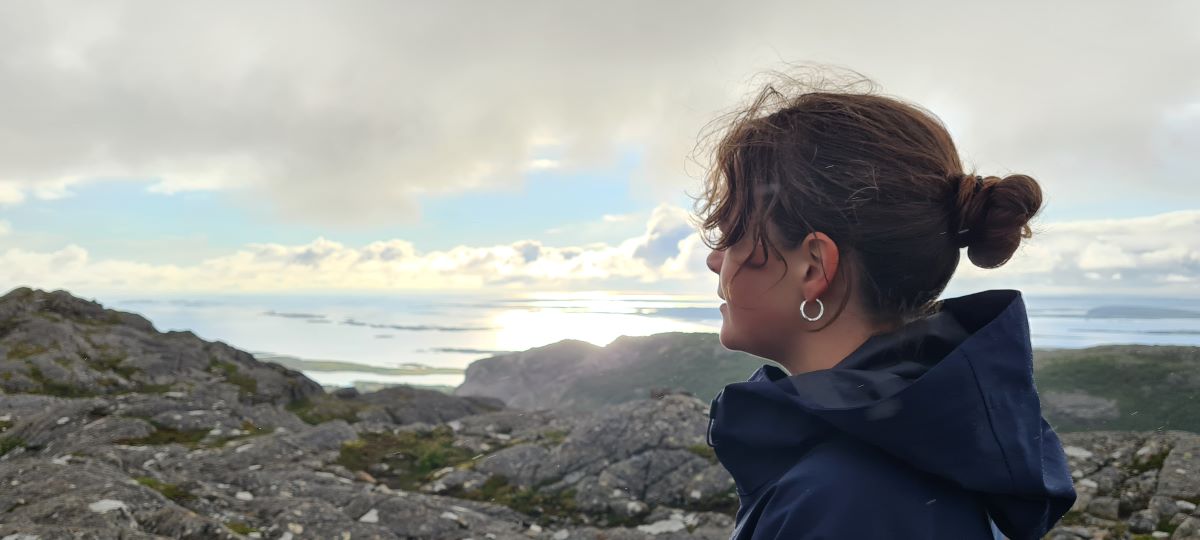Disability and society
Disability and society

Photo: Heidi Pedersen/NTNU
Disability and society
The disability research group “Funkis” at the Department of Social Work works with broad, interdisciplinary issues related to social science research in this field. The research uses a variety of methodological and theoretical approaches. Disability arises from an interaction between individuals and their surroundings. The researchers in the group have been particularly concerned with the cultural, societal and environmental dimensions of living with disability and experiencing marginalization. The research group contributes scientific knowledge based on analyses of different types of disabilities, analyses of interaction between people and their surroundings throughout the course of their lives, as well as analyses of equitable solutions and participation in society. The group aims to develop relevant knowledge to support the master’s programme on “Disability and Society” and to help identify knowledge gaps related to positions that create disabling barriers in society.
The research group, consisting of both senior and junior researchers, has worked with different national and international research and development projects over the years. The research group has also contributed to developing the research field in Norway and internationally for several years. Several members of the research group have held and currently hold leading positions in research networks such as NNDR (Nordic Network on Disability Research) and NNFF (Norwegian Network on Disability Research) in addition to having broad research networks.
Ongoing research projects
The purpose of the project is to provide an updated description of the housing situation for people with developmental disabilities, while mapping how this has developed in recent years. Part of the background is a concern that the gap between the political ideals and the actual housing situation is too great. In addition, it has been a long time since a broad review was conducted in this field.
The project addresses a variety of issues related to living arrangements, such as the type of home, the size of group homes, the right to choose one’s home, how many people own their own home, how many adults with developmental disabilities still live with their families, housing finances, and other aspects. The project traces developments since 1994, immediately after the closure of the institutions. The project is led by Professor Jan Tøssebro.
It is financed by the Norwegian State Housing Bank and organized by NTNU Social Research. The report Utviklingshemmetes bosituasjon [The housing situation of people with developmental disabilities in 2021] is available at NTNU Samforsk | Utviklingshemmetes bosituasjon 2021.
From August 2022, no fewer than 14 laws on various welfare services will be amended. The purpose is to improve the basis for collaboration and coordination between different areas of services. The immediate background is a series of reports and communications concluding that coordination and cooperation between different agencies working with welfare is unsatisfactory, and that this is particularly problematic in services for children and young people who need complex services.
With a time frame from 2022 to 2027, the study includes an investigation of the implementation of the reform, with surveys directed at families, front-line bureaucrats, service centres and municipalities, as well as a study in which some families with children who need complex services are tracked over time. The work is led by Professor Jan Tøssebro and conducted by NTNU Social Research.
The evaluation is funded by four Norwegian directorates in the field of welfare (the Directorate for Education and Training, the Directorate for Children, Youth and Family Affairs, the Directorate of Health and the Directorate of Labour and Welfare).
Project managers: Heidi Pedersen and Ingunn Fylkesnes.
This is a professional development project that aims to contribute to developing the universal design skills of academic staff involved in study programmes in social and child welfare education at NTNU. The purpose is to ensure skills development focused on universality in the context of teaching, that is, how one can better contribute to universal design as a topic in teaching and of the teaching situation in itself in connection with associated study programmes.
Today, study programmes in social and child welfare at NTNU are not explicit about showcasing universal design in their portfolio of subjects. The study programmes involved are the bachelor’s programme in social work, the bachelor’s programme in child welfare work, the master’s programme in social work, the master’s programme in child welfare work and the Master of Science programme in disability and society. The latter master’s programme has incorporated universal design as an academic topic in student teaching, but it is working to develop its expertise in this area further.
It is important for social workers and master’s students to gain experience with universal design through their study programmes so that they can practise it further in their professional fields. In particular, this applies to focusing on structural factors that contribute to creating barriers such as disabling processes, practices, marginalization and exclusion. This applies to people within different contexts and in different phases of life.
The Norwegian Directorate for Higher Education and Skills (HK-dir.) is funding the project.
Leader of the research group
Deputy leader of the research group
Members of the research group
-
Stine Berre PhD Candidate
+47-73413215 +4794471924 stine.berre@ntnu.no Department of Social Work -
Ingunn Fylkesnes Associate Professor
+47-73559826 +4747902886 ingunn.fylkesnes@ntnu.no Department of Social Work -
Marianne Hedlund Professor
+47-73559838 +4741270975 marianne.hedlund@ntnu.no Department of Social Work -
Iris Marita Rønningen Helgesen PhD Candidate
+4746692523 iris.m.ronningen@ntnu.no Department of Social Work -
Turid Midjo Professor Emerita
+4791598433 turid.midjo@ntnu.no -
Rannveig Frøseth Sinkaberg PhD Candidate
+4795263939 rannveig.f.sinkaberg@ntnu.no Department of Social Work -
Christian Wendelborg
+47-73550612 +4791106644 christian.wendelborg@ntnu.no Department of Social Work
